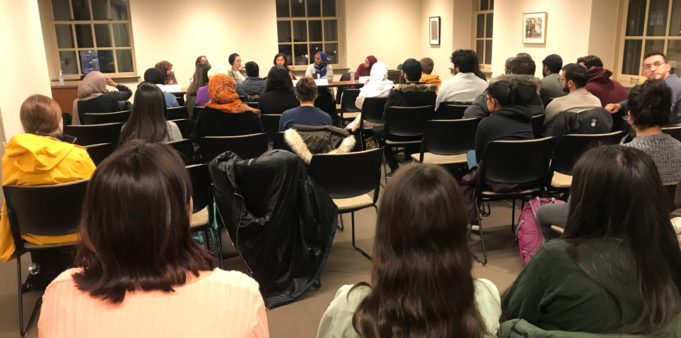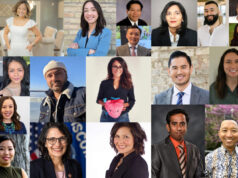The UW-Madison Muslim Students Association (MSA) hosted their first Muslim Women’s Career Panel Thursday night to celebrate the start of Women’s History Month.
The panel featured five Muslim women in fields ranging from architecture to healthcare, including one graduate student. The panelists, Nasra Wehelie, Samina Khan, Maria Ahmad, Hana Altabbaa, Samina Hossain and Maha Abdalla Mohamed, discussed the highlights and struggles of being Muslim women in their fields, which were often male-dominated.
Each panelist recounted how they ended up in their fields and the extent their religion played a role. For most of the panelists, religion didn’t become a forefront of their identity until they moved to the U.S. Altabbaa, who grew up in Palestine, started actively identifying herself as Muslim when she came to the U.S. because of the lack of Muslim women in her field.
“The big move was to Des Moines, Iowa and here I got the shock in my career,” she said.
Altabbaa, who was working in architecture in Palestine, had to start from scratch because of technical differences. The lack of Muslim women in her field didn’t help either. So Altabbaa started advocating for Muslims when she could, much like the other panelists in their respective fields.
“We wanted to think about a good way to talk about Muslim women and acknowledge their experiences, challenges and also successes,” Dema Jaber, MSA’s marketing chair, said. “We also wanted to keep it local. This is the first time MSA has ever had an event like this and so we wanted to acknowledge the existence of Muslim women in general because we don’t really get to find events that cater to those types of experiences.”
The panel was followed by a question and answer session, where students had an opportunity to ask the professionals specific questions about their experiences or about tips on entering the workforce in the future.
“It can be difficult going into a space where you’re marginalized,” Jaber said. “So I think listening to different experiences gives that reassurance that there are people with a shared background who did it and so can you.”










